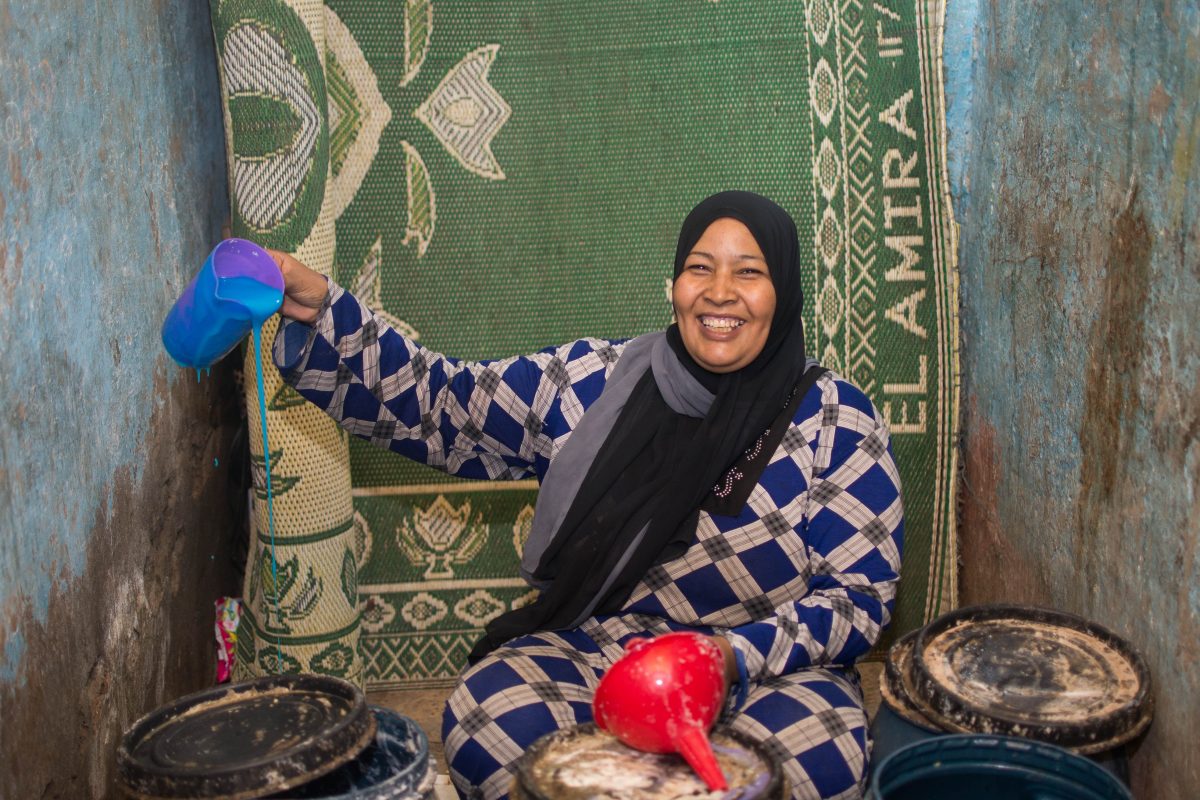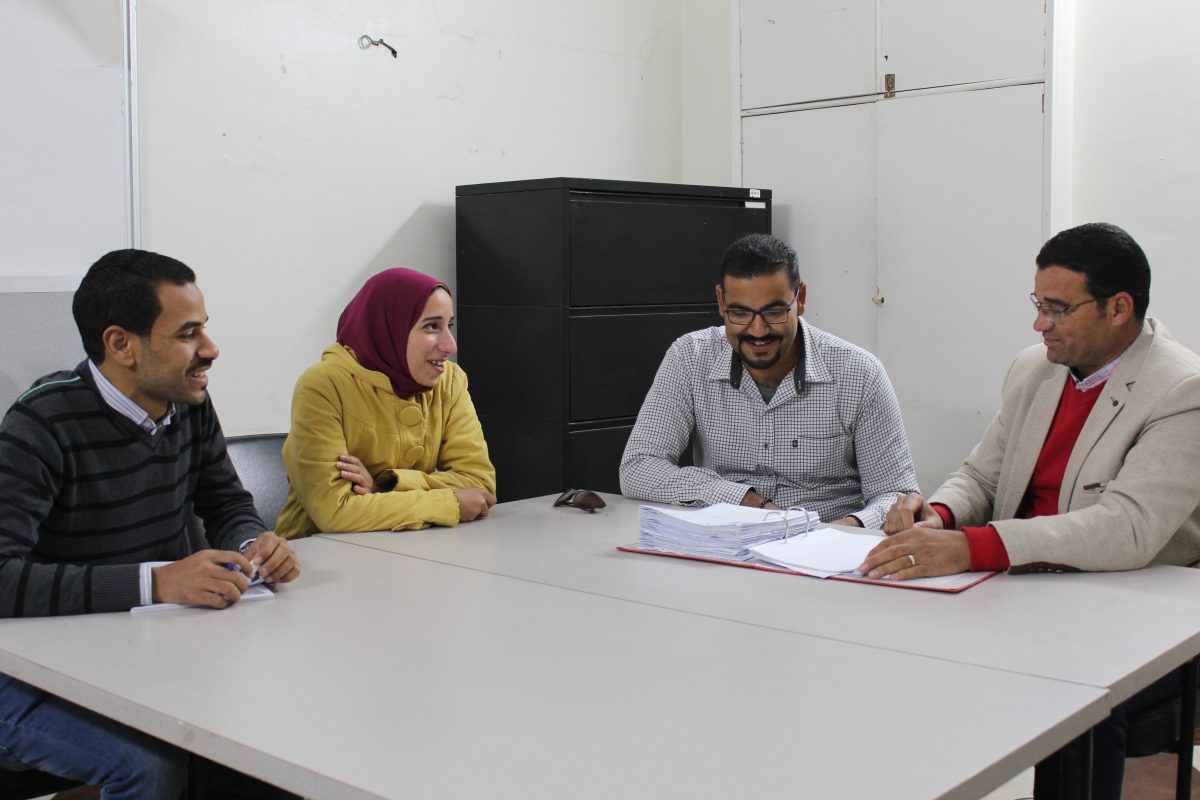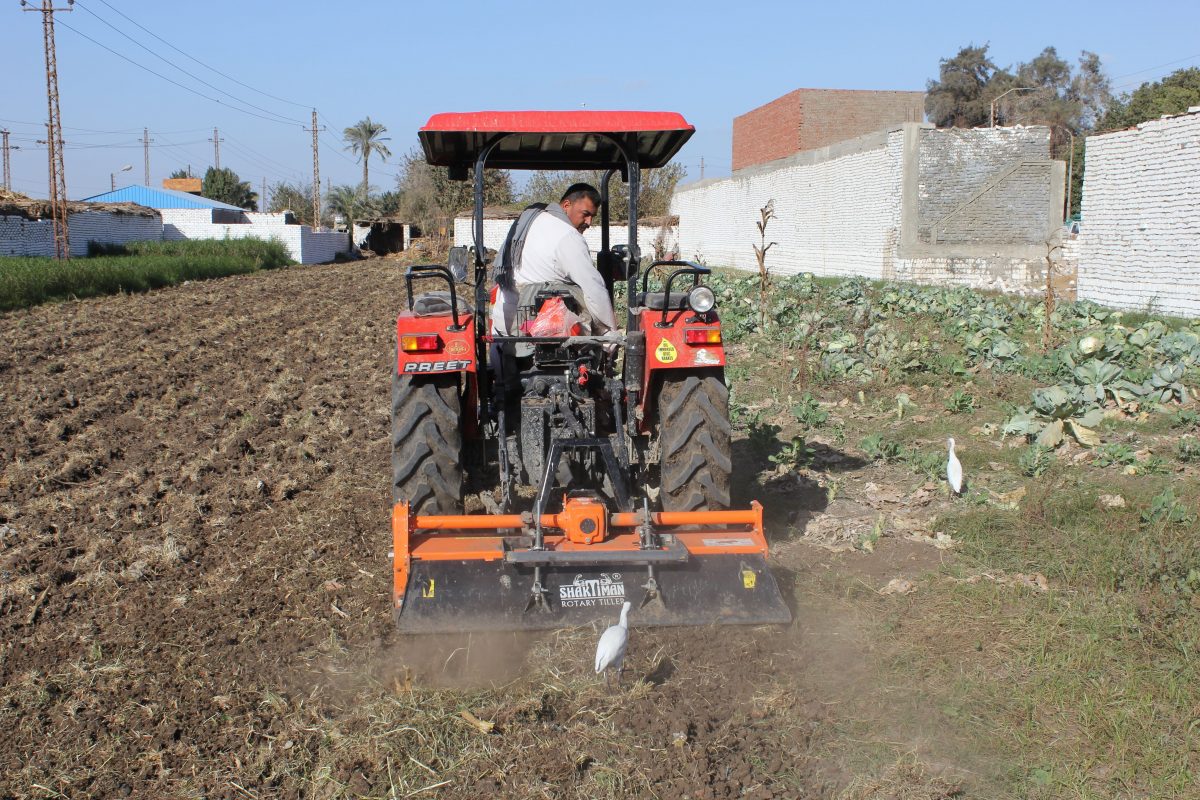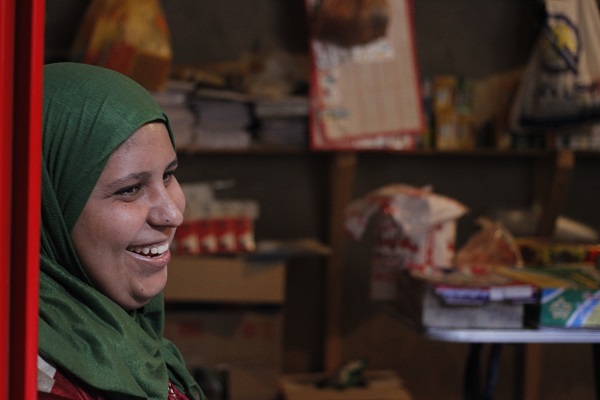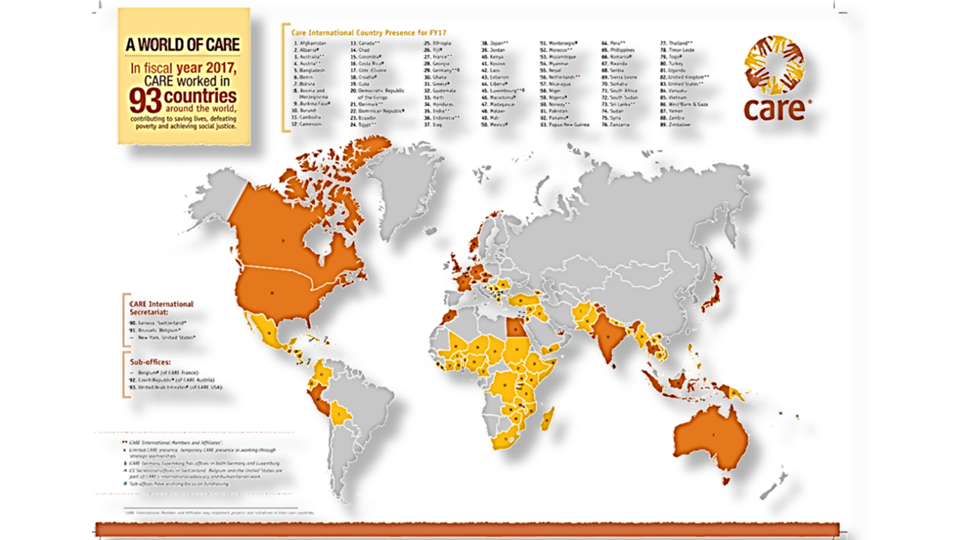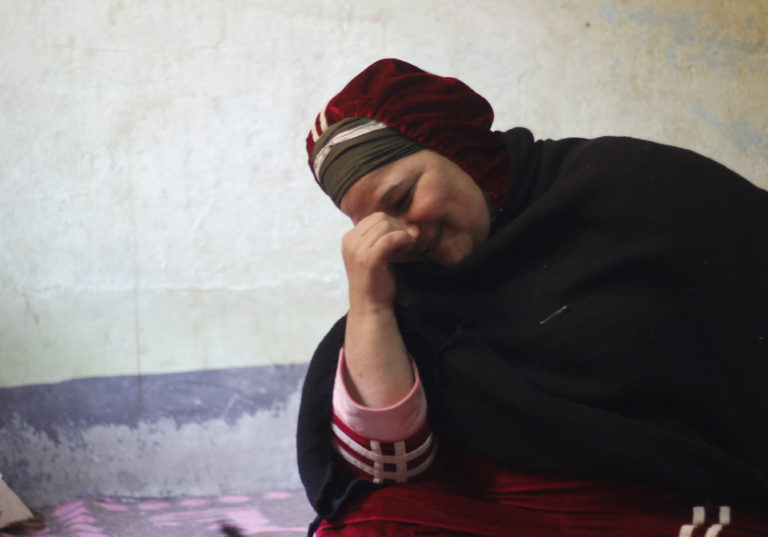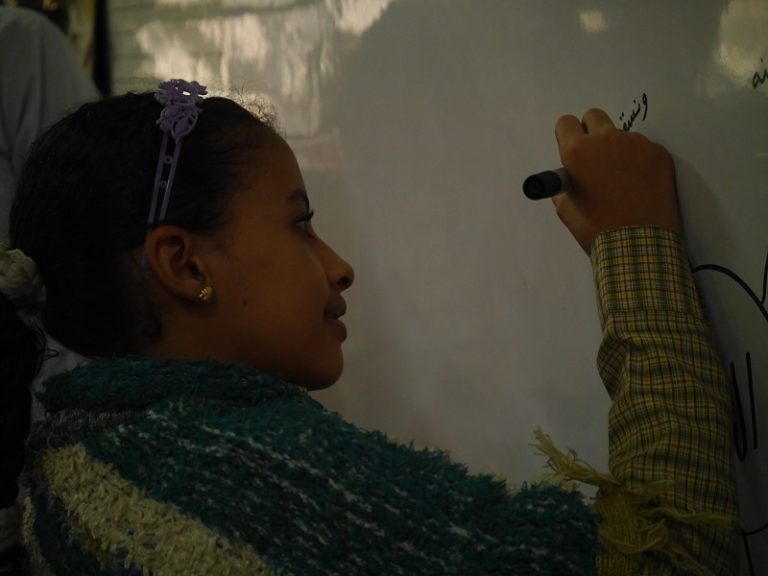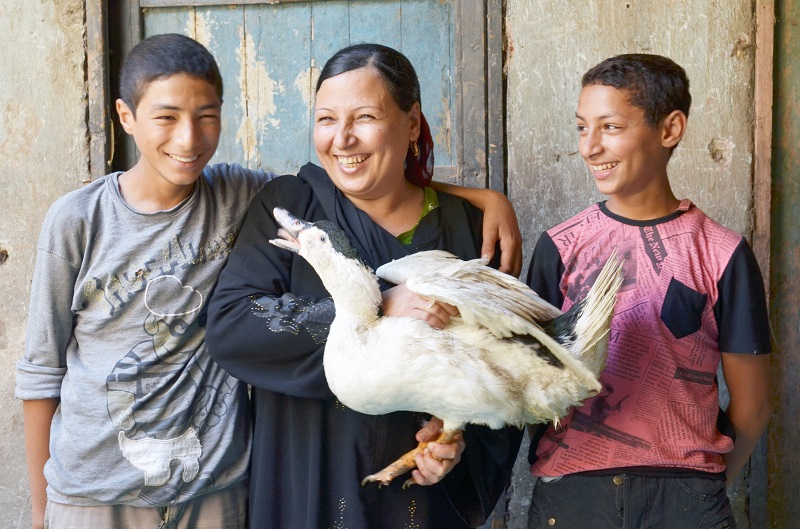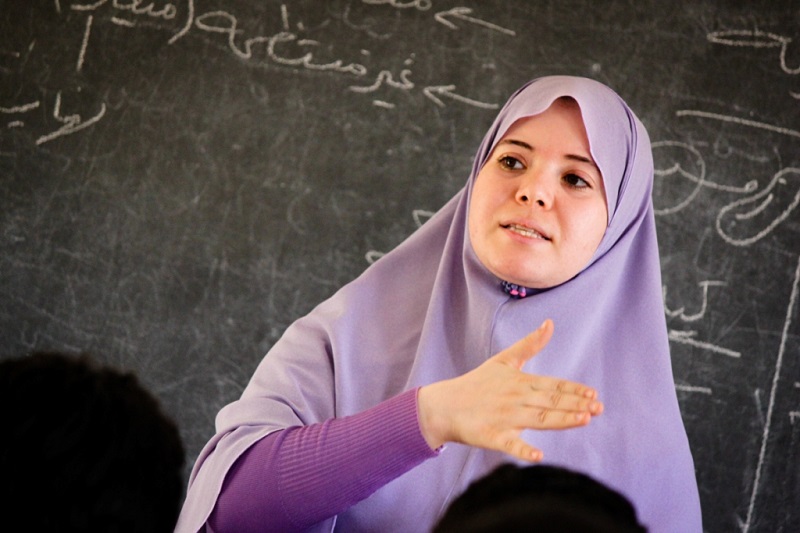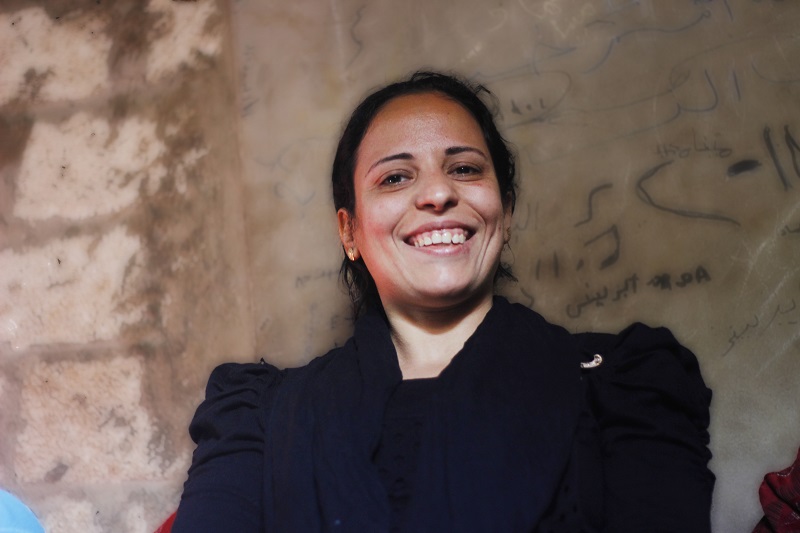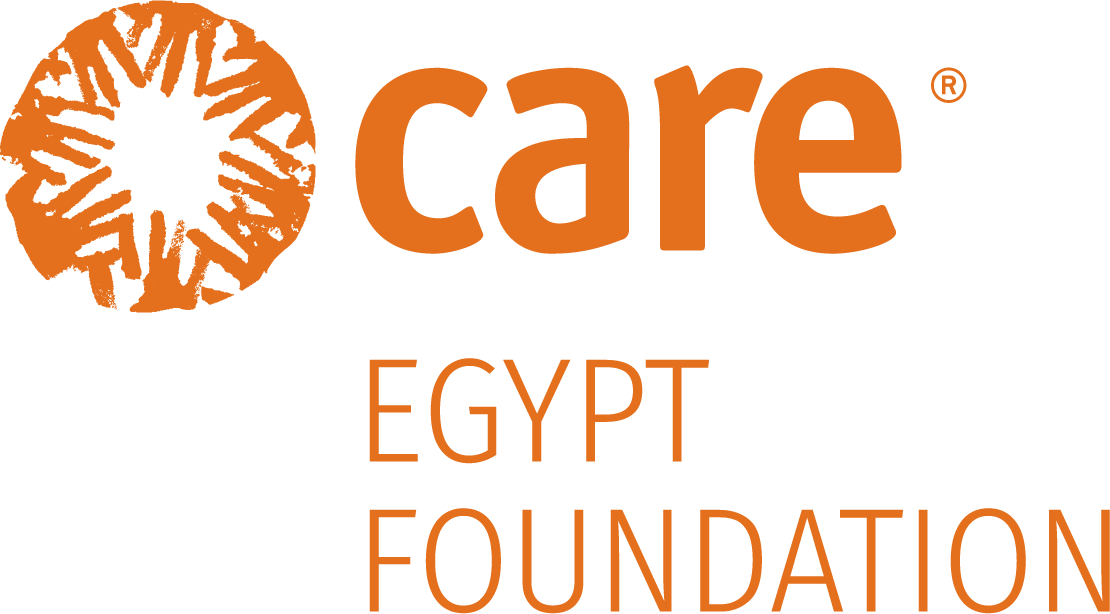What could EGP100/ a day do for a family of seven members? Khadra Mostafa, a married woman living with her husband and five children in Dayrout El-Sherif village, Assiut governorate. The oldest girl is 16 years old is getting married soon, and the youngest is a 5-year-old boy. Large families tied with small income are a main feature of local communities. Khadra’s family speaks for the status quo of thousands of poor families in Upper Egypt. Her husband, Sherif works as a baker. He has been moving from one working place to another. Khadra and Sherif used to fight all the time about money. This has quickly turned into violent discussions. Endless discussions triggered silence. Khadra in dire need for money has stopped asking her husband for money not even for her diabetes medication. She ended up going into a coma. The family remained with zero income for long time.Amal Bokra/ Hope for Tomorrow association made an announcement about the EU sub-grants. Khadra submitted an application. She has always loved soap trading. Before getting married, she used to sell and buy ready-made soap. But she could not make soap at home. “I did not know how to make it. No one taught me”, she explains. First, her husband refused the home-based business. He could not stand the idea of people constantly visiting the house day and night. Things changed overnight! One day, her husband left his job for over a month. “Suddenly, he stopped pouring his anger on me: he realized that I can make money on my own. We don’t argue about expenses anymore”, she said.
Zaynahom, head of Amal Bokra association explains that the grant covers the largest portion of the capital needed for the business while the applicant pays the rest to ensure her seriousness about launching the business. In addition to the grant, Khadra received a 3-day training at the association premises to gain the necessary skills for soap making. At the beginning, it was not easy: “I spoiled two mixes and kept crying all day. At the end, I was able to fix them. They were all sold out”, she explains. “Today, I gain EGP 800/ month. I pay the house rent. I spend the rest on food and education of my children and save some money for my daughter’s wedding”, Khadra adds.This small business has just unleashed her mind to think about bigger dreams. She is now dreaming of expanding her business and buying a new house. “What would happen to my children if I die? I do not want to leave them on the street. We need to have our own house”, she highlights. Howaida Nagy, Project Manager at CARE explains: “CARE is keen on providing women participants with capacity-building trainings as we will not contemplate with providing money to participants. Our goal is to offer sustainable interventions to the target groups that would have impactful sights on their livelihoods for years to come.”
